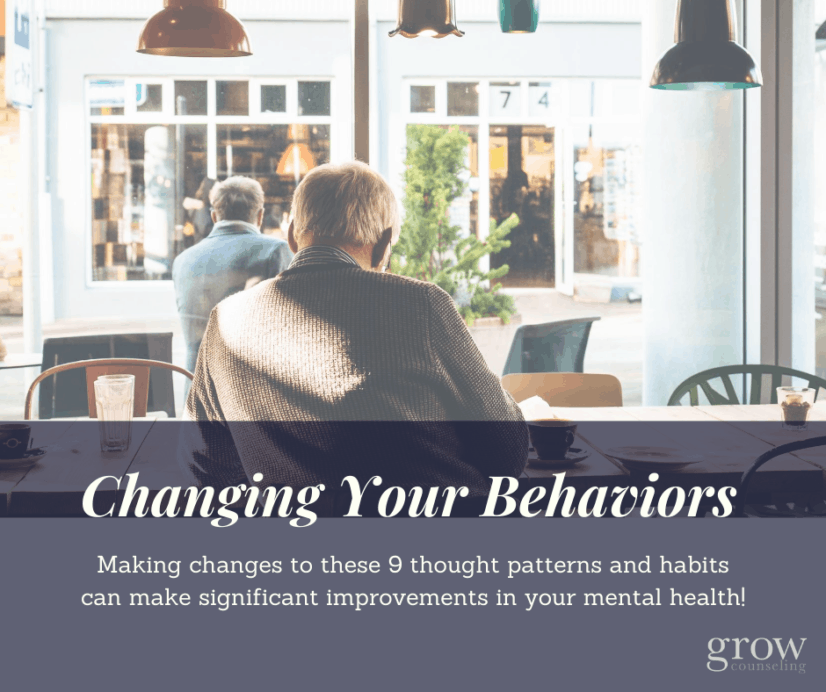While on vacation relaxing in a spa, I came across the article, “Habits that Mess with Your Mental Health” in the Health magazine. This of course grabbed my attention because I was encouraged that a magazine about health saw the value in addressing mental health.
The article addressed 9 thought patterns that interfere with well-being and ways to change the associated habits:
- Self-criticism – we all do it, when we look in the mirror or realize we’ve made a mistake. In reality, it doesn’t motivate us to change. Instead, try speaking kindly to yourself.
- Need for control – extensive list making or obsessive need to have everything in its place. The thought here is planning for every contingency will ensure you won’t be disappointed. Instead, lean into the fear driving your need to control.
- Playing the comparison game – we are wired to compete in order to survive. With the addition of social media, this survival instinct has been hijacked. Attempting to “keep up” is exhausting and endless. Return your focus to what you have. Begin the practice of ending the day noting three things for which you are grateful. Keeping a gratitude journal will remind you of what you have in times you are feeling less than.
- Failure to give yourself credit – imposter complex is the belief you are a fraud when you receive accolades and accomplishments. Practice saying “thank you” and resist the urge to diminish your worth.
- Striving for perfectionism – this usually stems from a need to meet other’s expectations. In reality, there is no “perfect” so it is inevitable that something will go wrong. Focus on what you did right, and be proud of yourself.
- Refusing to ask for help – you don’t want to be a burden so you refuse to reach out for help, but isolation can be paralying when you are suffering. Begin to cultivate a support team, a select group of family and friends that know you well. They can be with you in your pain and remind you how you have managed difficult challenges before.
- Never say “no” – agreeing to things you really don’t want to do makes you resentful. Give yourself permission to think before you respond to an invitation. If you aren’t excited about it, politely decline. Consider setting a limit on how many invitations per week you will accept so in times of weakness you won’t be pressured to accept.
- Don’t notice your feelings – no one wants to feel difficult emotions, but avoiding them could set you on a path on unhealthy coping mechanisms, like substance abuse or emotional eating. Try dedicating 5 minutes a day to write down your thoughts and feelings in a mindful way. Practicing self-awareness will help you find relief from the negative emotions and improve your ability to deal with them.
- Not enough sleep – whether it’s binge watching a new show until the early hours or getting up early to work out, your sleep schedule may not be enough for your body’s needs. Lack of sleep can affect your stress level, cognitive ability, mood, and even weight. Keep a daily diary for a week to track the amount of sleep you are getting, and assess whether it is impacting your mental health.
Written by: Ann Sheerin

